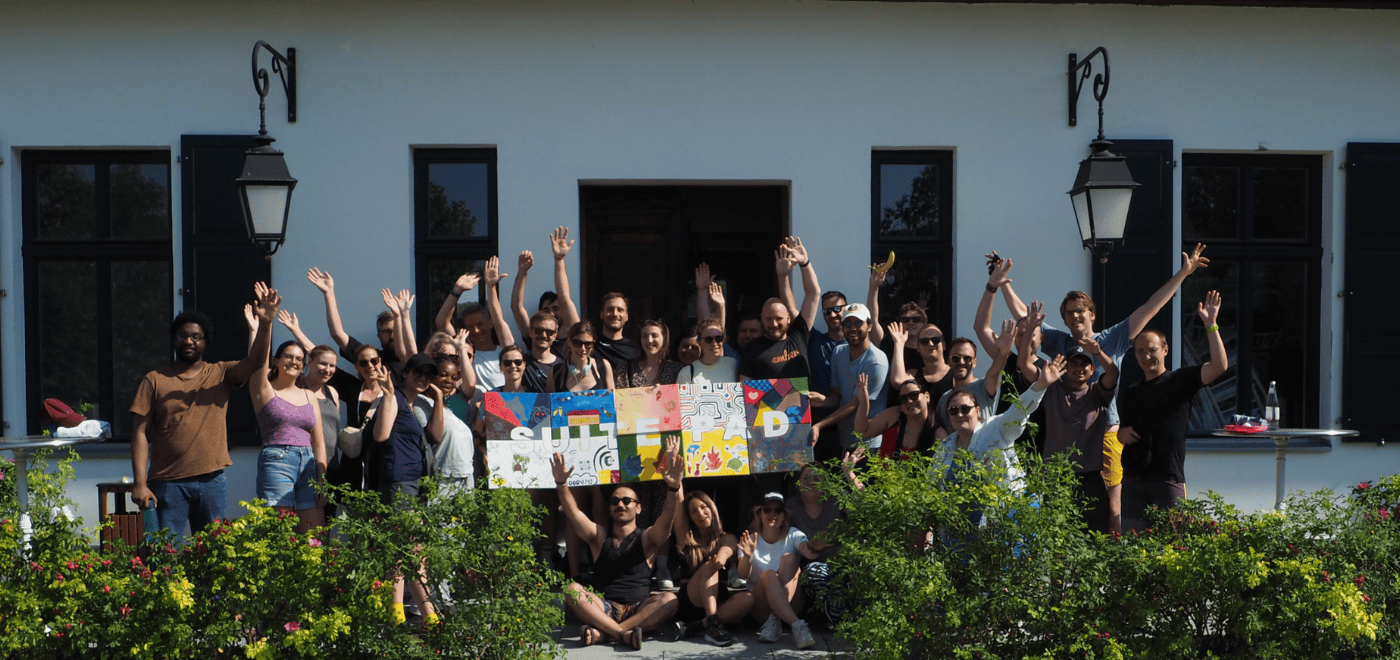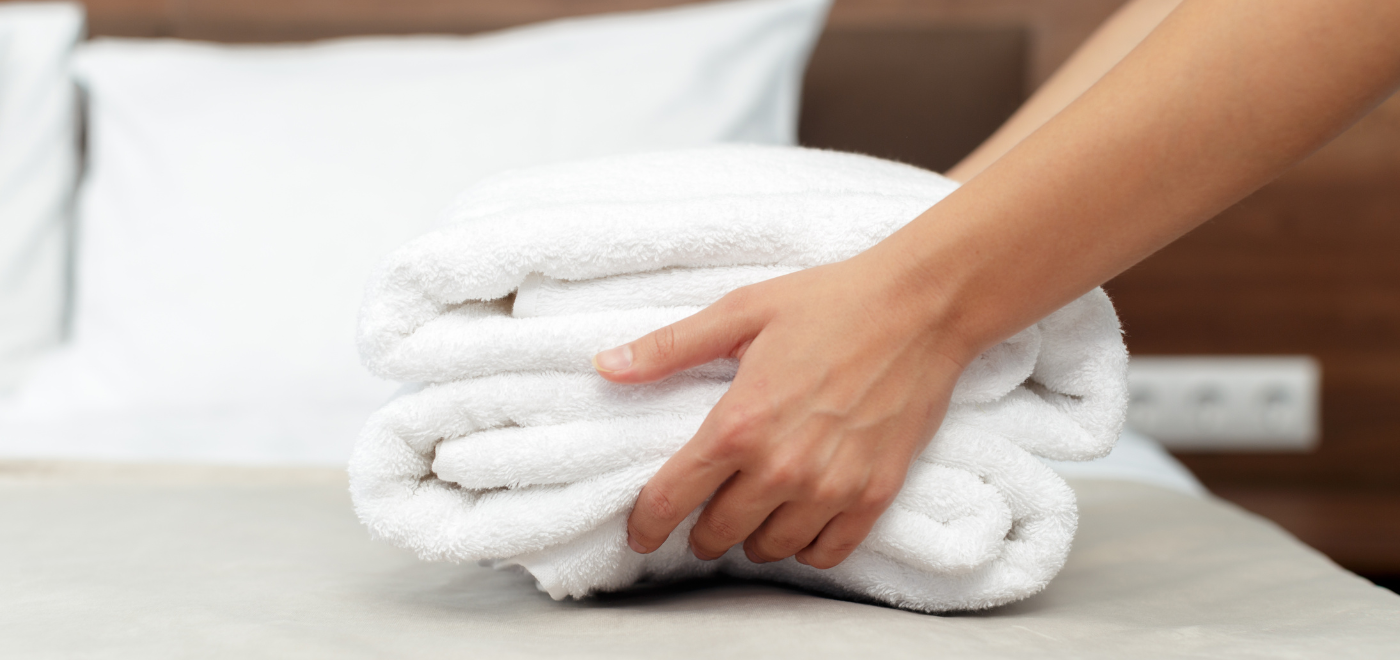![]() Tilmann talks about the development of SuitePad, his recent visit to the factory in China, and where SuitePad is headed!
Tilmann talks about the development of SuitePad, his recent visit to the factory in China, and where SuitePad is headed!
In this interview, co-founder and managing director of SuitePad, Tilmann Volk, answers questions from SuitePad’s head of marketing, Philipp Wachenfeld, about the company’s development over the last few years, the production processes involved in making SuitePad tablets, and where SuitePad is heading in the future.
Tilmann is a co-founder and managing director at SuitePad, a SaaS company which he founded along with Moritz von Petersdorff-Campen in Berlin in 2012. Prior to founding SuitePad, Tilmann studied at the WHU – Otto Beisheim School of Management in Vallendar and then spent time working in China, the US, and Spain, before leading the business development division of Käuferportal, a successful Berlin startup.
How SuitePad has developed over the past few years
Philipp: Tilmann, you’re the managing director and co-founder of SuitePad. Please tell us a bit more about your responsibilities and your daily work.
Tilmann: At SuitePad I’m responsible for all things product and all things operations, which means I get to work closely with the development team and the product management team to think about the future and what we want to develop. It also entails working closely with the operations side, our account management team, and our support team to understand what our customers actually want and how they tick. That then, in turn, influences what we do in product management.
Philipp: A good product is key for every SaaS company. SuitePad offers both the software and the hardware for their devices. Looking back, how did product development here at SuitePad look when you first started out?
Tilmann: Yeah, so that was a little chaotic I'd say [laughs]! From the software side, Moritz and I had a lot of listening to do in the beginning because we were new to the hotel industry. When we founded SuitePad, we had to ask lots of hotels what kind of product they wanted and helped them, or even have them shape it for us a little bit.
And up to this day, some of our best features come from hotels, like the Green Option – that was an idea from a hotelier! But, in other respects, it was actually pretty good to have the outside point of view to see or bring innovation to the hotel business. One of those innovations and one of the core beliefs for us was that we needed hardware in the rooms in order to reach guests in a meaningful way.
So, we started off using tablets from a third party supplier and then four years ago now, we started working on our own hardware for the first time and subsequently have built on that.
Philipp: You mentioned the devices supplied by a third party. Why do we produce our own hardware now? What are the advantages for us as a company and for the customer?
Tilmann: That's a really good question because you get asked it a lot, especially before you've done it! At first, we ourselves were convinced that consumer grade tablets could get the job done well. But because you use a tablet in a hotel room very differently than you would your own device – for example frequently docking and un-docking the device – we learned that there is a completely different set of boxes that the device has to tick. Relying on consumer tablets for our early installations meant that docking stations would sometimes break under the heavy use and Micro-USB charging cables would get taken by guests. This was a burden for our partner hotels, and we wanted to improve on this. We introduced the SuitePad 8 with a heavy-duty docking station that would withstand thousands of docking cycles and got rid of standard charging cables. We also added a whole new layer of security by omitting any USB data ports on the device and increased privacy by leaving out cameras, both front and back-facing, on the device. Because portability isn’t much of a concern for us, we didn’t need to focus on every last gram of weight and could use high-quality (but heavier) metal and glass which really adds to the bespoke feel and robustness of the device.
Essentially, when you buy a third party device to put in your room, you're not getting what you need and you’re paying more for what you don't need, like the brand name and fancy camera technology. That really gave us the impetus to start developing our own hardware along the lines of our own requirements. And it really helped us to build the perfect product for hotels!
Tilmann in China
Philipp: You just came back from China where you were visiting the tablet factory. Why did you initially decide to produce the tablets in China?
Tilmann: Nearly all of our consumer-grade hardware comes from China – is produced there, is assembled there. There’s a good reason for that: I’d argue that the highest concentration of expert engineers in the field are located in Southern China.
What really made the difference for us was that when you're on site in Shenzhen in China, where we work with the factory, and you're in the room with engineers, a question might come up that no one can answer. Rather than wasting time trying to find the answer themselves, someone gets on the phone, calls an engineer from the supplier factory, and they get in a cab and are there in a few minutes so you can work it out right there and then. That’s a real luxury that we wouldn't have if we did it any other way.
Philipp: Tell us some more insights about the factory. What does it look like? What kind of work takes place there? You've been there several times.
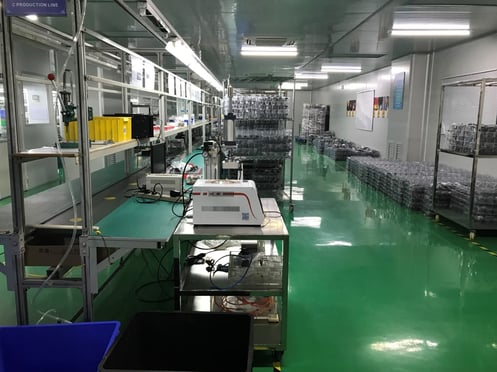
Tilmann: I think to answer this question right, we first have to look at what kind of factory we're working with. We order and produce our tablets in batches of about 3,000 to 6,000 devices. This is a far cry from the kind of volume that a Foxconn, Samsung, or whoever would sling.
That really narrows down the kind of factories we can work with. Most factories are geared towards offering assembly capabilities for manufacturers that really want mass, you know, mass products, and we need to find an assembly line that will work in small quantities because they see the long-term gain with us. So, as much as we are selecting a factory to work with, they are also selecting who they want to do business with. It’s a two-way street. What we had to do was to convince them that with us, it'll be a long term engagement. We will work very closely with them to getting it right, build a high-quality product in medium-sized batches, and over a long period of time. That's why they saw potential in us.
Now for what this factory actually looks like – the whole factory is built around the assembly line. The assembly line is a clean room in the middle of the factory where the different components are either ordered-in readymade or custom-made for us on site and are then married and put together. You need to go through an airlock and then they have multiple assembly lines within this big room. Then, there are some auxiliary rooms around that – there's a packing station, an aging room where you put in a certain amount of devices per batch and age them by blaring music on full loudspeaker volume – usually some C-pop, K-pop, or some even Taylor Swift [laughs]. They then charge them for a while. It’s a place where the devices are pushed to the limit to ensure the standards are high.
And then, of course, there's also the inspection room where I would spend lots of my time actually looking at the devices in detail and testing them together with our inspectors. And then there are staff rooms and a canteen for the employees of the factory.
Philipp: That brings up a good point about the factory employees – how are the working conditions at the factory?
Tilmann: Well, that's a really important question and it was important for us to have a factory that took good care of their workers. Very often you hear stories about questionable working conditions in China and lots of these are unfortunately true.
There's also no real safeguarding against this except for going there and having a look for yourself. Since we've been going to the same assembly line at the same factory over the past few years, we've gotten well acquainted with the people who work there and we can see how they work and how long they work. I can say that from what we've seen, and from the certificates of course that our factory has, they have very good working conditions. That’s also in tune with what's happening in Shenzhen at the moment in general. Shenzhen has become somewhat of a silicon valley for hardware businesses in China and so rental prices have gone up and technical personnel like engineers and factory workers are in great demand. It's very common for factories to poach different employees from each other, especially during the offseason which has created a kind of bidding market so you have to be an attractive employer to actually keep these people, not unlike hotels looking to acquire and retain talent!
That, combined with the fact that we've seen many of the same faces over the past few years in these factories also gave me a very good feeling.
Philipp: How do you ensure that SuitePad maintains an outstanding product quality?
Tilmann: I'd say nearly all big consumer electronic companies that produce in China have near-flawless qualities. The term “Made in China” used to be associated with cheapness, but that stigma is definitely disappearing – they produce quality and do it all the time.
There are still many pitfalls that we have sometimes evaded, sometimes learned the hard way. For instance, you have to very much take a boots on the ground approach in these factories because communication is a major issue. Hammering out decent requirements are, I'd say, about 50% of the problems that German, or at least European companies have when they try to produce in China. It's very ignorant but easy to assume that the Chinese engineers know exactly what you want when you give them a sketchy description.
The other thing is, of course, the language barrier. We've noticed that being there, being able to point out things, being able to explain things with diagrams and graphics really goes a long way. It really boils down to where you allow them the freedom to do their job as they want to, and where you give very clear guidance. I think we let the factory decide many of the things by themselves such as the set up of the actual production line – that's not something that we have expertise in. They will do that for themselves, but we have a very clear idea of our requirements and we try to hammer them out as exact as possible.
For every batch that we produce, we have inspectors that go in, take random samples and we'll sometimes reject entire batches if even a small issue is found. These are things that seem very, very small on our end, like a tiny scratch on a button or a slight variation in color for instance, but it can mean the difference between a tablet looking the same in one room and different in the other. So that’s why we pay great attention to our standards.
Philipp: You’ve been to China quite often. And you also did an internship in China, a long time ago…
Tilmann: [laughs] Yes! A long time ago now [smiles]!
Philipp: Do you think this experience was useful for the work you do now at SuitePad?
Tilmann: Sort of… I was there when I had just graduated high school. This was my first internship and I went to live in Beijing for a few months and I got really lucky because I got to work with the EUCCC, that's the European Union Chamber of Commerce in China. They were working on a position paper on behalf of the European Commission, lobbying for safe work conditions and free trade. These are of course things that now directly affect us.
At the time, I think they let me move about five commas or so and then one or two citations. But the most important thing was they let me read it! It's so interesting to see that many of the things that were lobbied for back then have really found their way into the business culture in China – for example, environmental regulations that have become much more strict in China.
Other things are still very much the same, things that people are lobbying for. And you know, after that, I dialed down the visits to China visits for a while, but then recently over the past few years, I've been going two or three times a year.
Philipp: And how is your Chinese?
Tilmann: [laughs] It’s not that good, but I know some basics – Bù hǎo is the Chinese word for “not good”.
Philipp: We have spoken a lot about the hardware components, but SuitePad is actually more of a software company than it is a hardware company. Could you tell us a bit more about the software side of things?
Tilmann: Of Course. So there's a basic operating system running on the devices when we get them from China. For a number of reasons, we don’t want to add our software component yet in China. That's why we import these devices to Berlin, touch every single unit again and flash it. And that, of course, gives us the chance to inspect every single device again ourselves and let it run through another quality check.
It allows us to keep all of our software, critical software IP, within our immediate company. And once the SuitePad application and all the other things are installed on the device, it’s then prepared for the hotel specifically and then shipped out again from our Berlin office. That really reflects our entire philosophy when it comes to product development on the software side. We have almost all of our developers based locally here in Berlin, in house – we hardly do any outsourcing and if we do, it’s usually just on a small level. I think that has helped us in the past few years to have consistent quality and accountability as well.
What we can expect to see from SuitePad in the future
Philipp: Currently, we only have eight-inch devices, but we will soon be launching the ten-inch devices. Why?
Tilmann: Yeah, that's going to be interesting! I'm really excited about it because the eight-inch has been somewhat of a stalwart for us. We have tens of thousands of them in hotel rooms around the globe now. They've really made a huge difference for us to enable so many hotels to come into the digital age of guest communication and that's a great thing.
But, for those hotels that need or want to offer their guests that little bit more, that extra bit on top, we were asked to offer something for these customers – and so we've answered with the SuitePad 10. The SuitePad 10 is not only just a bigger SuitePad with a bigger screen, although it does have a bigger and better screen, of course, it's also more powerful, has better speakers, better VOIP capabilities for placing phone calls. Overall, it will be just that little bit more premium than the SuitePad 8.
Philipp: What will be the next big milestones on the SuitePad roadmap in terms of products?
Tilmann: So, we're still very much occupied with getting this SuitePad 10 out the door and we'll be focusing a lot of our attention on that. But of course, we're constantly working on new things. In China, I had the opportunity to spend at least two days working extensively on a new project that we will be launching in the next year. I can't tell you much about it right now, but all I will say is that I'm very excited about it already!
Philipp: Keeping us in suspense I see! Well Tilmann, thank you very much for giving us such an in-depth insight into how SuitePads are produced and the business as a whole.
Tilmann: Thank you for having me, it was my pleasure.
*This interview is the kick-off for a series of blog posts documenting Tilmann’s recent trip to the SuitePad factory in Shenzhen, China. You'll find out all about the factory, how SuitePads are produced, and get a detailed insight into how SuitePad ensures its products meet the highest standards.
SuitePad in the Past, Present, and Future Blog Series:
– The SuitePad Journey – How and why SuitePad offers hotels a complete end-to-end solution!
- Published on July 03, 2019
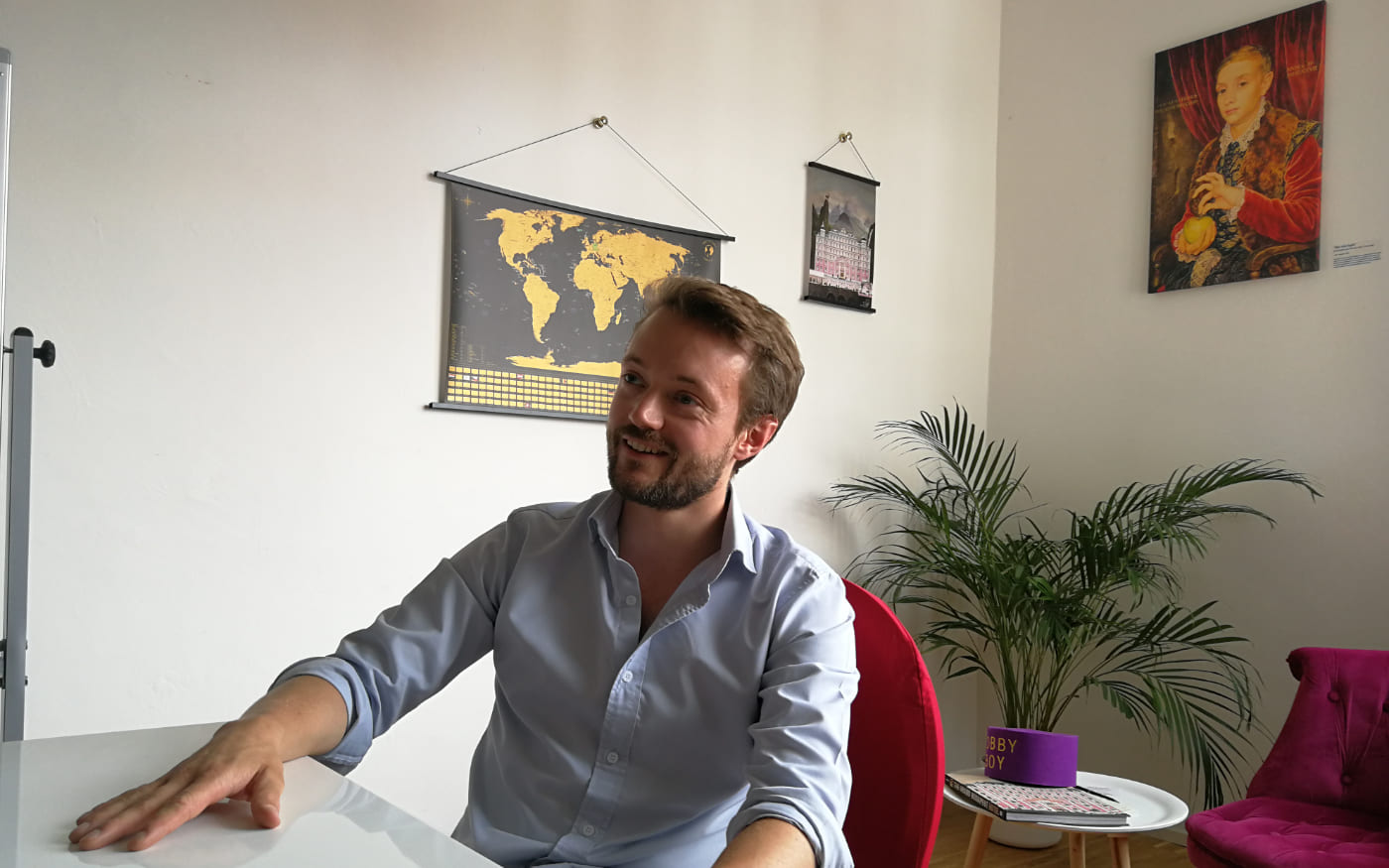

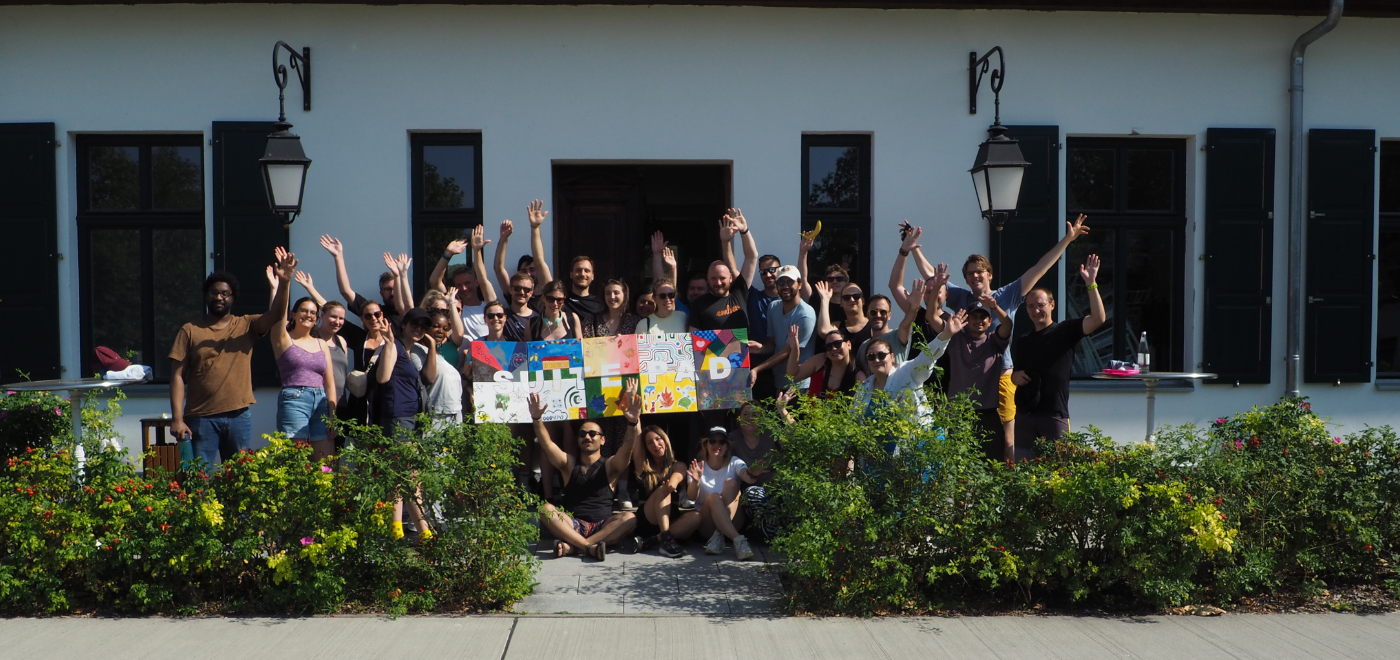
.png)
